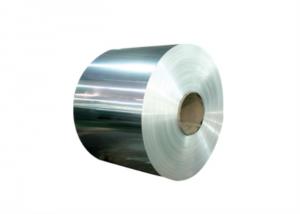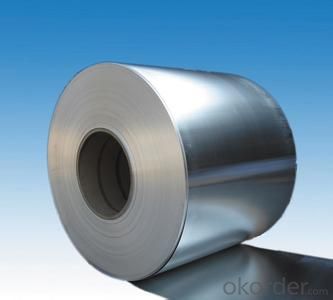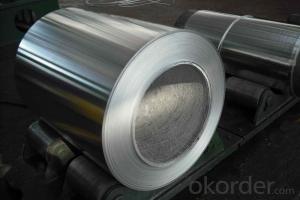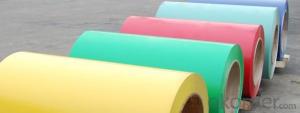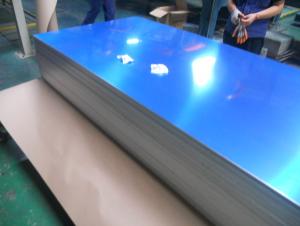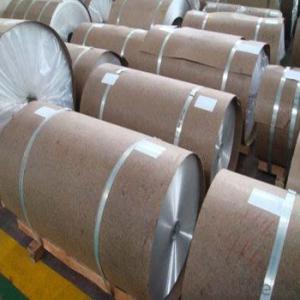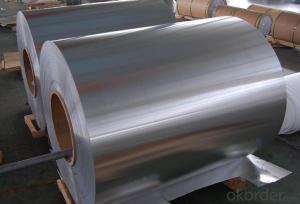Black Aluminum Coils for Direct Rolling in Vessel Building
- Loading Port:
- Shanghai
- Payment Terms:
- TT OR LC
- Min Order Qty:
- 80 m.t.
- Supply Capability:
- 50000 m.t./month
OKorder Service Pledge
OKorder Financial Service
You Might Also Like
Specification
1.Structure of Direct Rolling Aluminium Coils for Vessel Building
Direct Rolling Aluminium Coils for Vessel Building is one semi-finished aluminium material. This strip can be rolled down to aluminium coil,sheet,circle ect. The alloy AA1050 is widly used in building, industry ect. Its weight is much lower than steel. So many customers choosed aluminium material instead of steel.
2. Main features of Direct Rolling Aluminium Coils for Vessel Building
a.Competitive price---We have our own mills and can produce mill finished aluminium coils, so we can control the production cost better.
b.Professional after-sale service---We have more than 15 years exportation experience and you need not worry about the exporation problems.
c.Fast delivery time---We can control the delivery time within 35 days.
3. Image
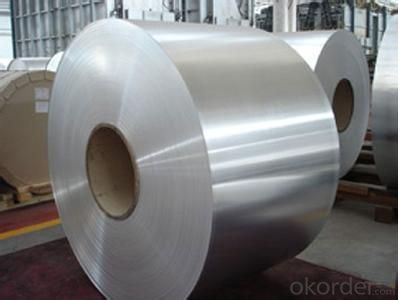
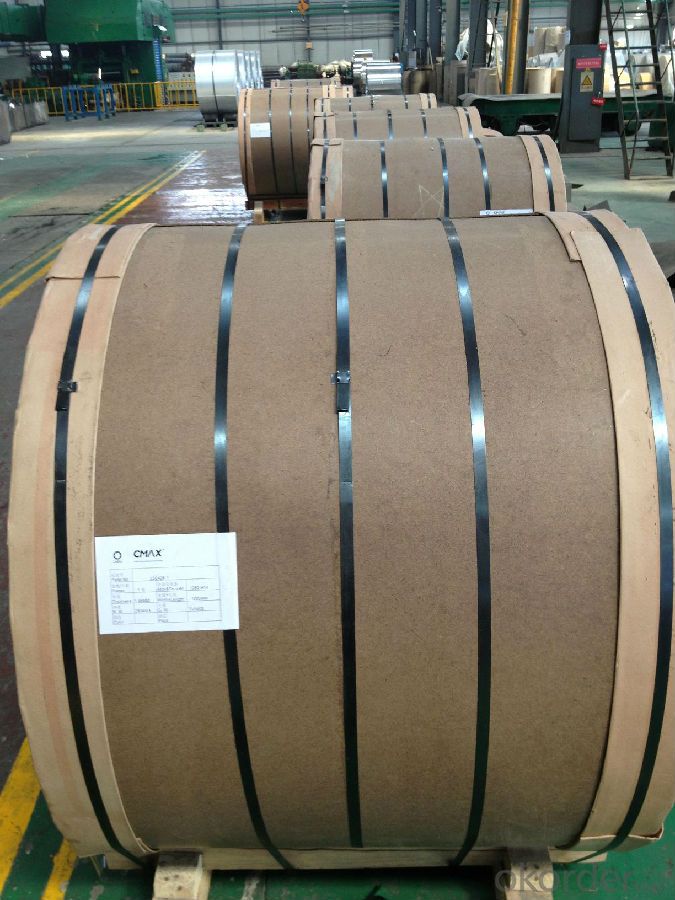
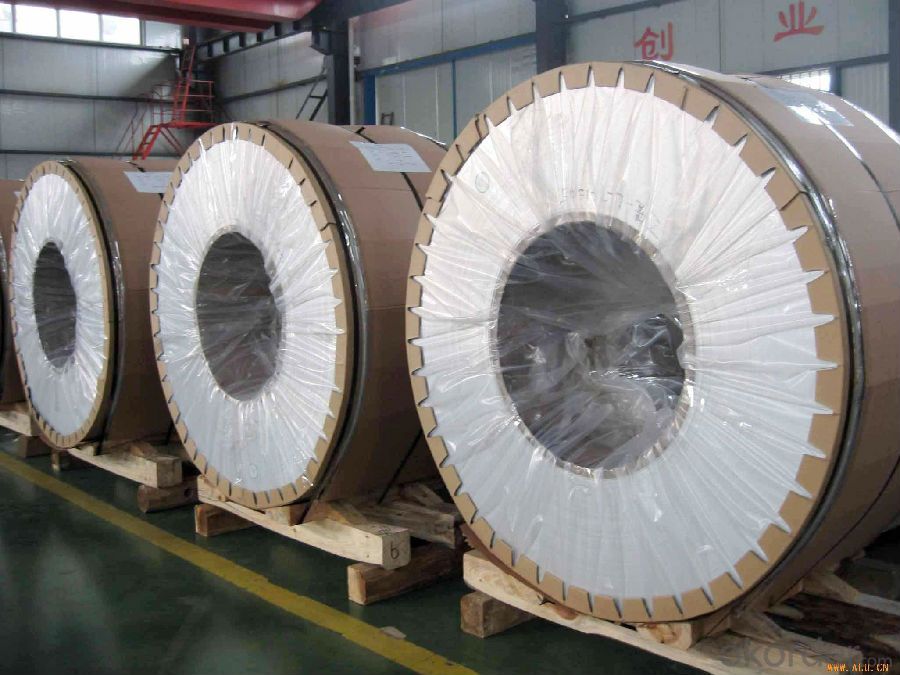
4. Product Specification
| ALLOY | TEMPER | THICKNESS | WIDTH | USAGE |
| AA5052 | H18 | 3MM-8MM | 1500MM-2200MM | VESSEL BUILDING |
5.FAQ:
What is the quality standard?
---Usually our standard is GB3880-2006
What is the largest width?
---It is 2300mm
What is the MOQ?
---Usually we can accept 80 tons.
- Q: Are there any limitations on the coil flatness of aluminum coils?
- Yes, there are limitations on the coil flatness of aluminum coils. Aluminum coils, like any other metal coils, are subject to certain tolerances and limitations in terms of flatness. Flatness refers to the deviation of the coil surface from being perfectly flat. The American Society for Testing and Materials (ASTM) has established standards for measuring and evaluating the flatness of metal coils, including aluminum coils. These standards provide guidelines for manufacturers, suppliers, and customers to determine the acceptable level of flatness for a given application. The acceptable flatness of aluminum coils can vary depending on factors such as the thickness of the coil, the grade of aluminum used, and the intended use of the coil. Thinner coils generally have stricter flatness requirements compared to thicker ones, as they are more prone to distortion and waviness. Coil manufacturers employ various techniques to control and improve flatness, such as tension leveling, roller leveling, or corrective leveling. These processes help to reduce or eliminate any deviations in flatness that may occur during the coil manufacturing or processing stages. It is important to note that achieving perfect flatness in aluminum coils is not always possible due to the inherent properties of the metal. Aluminum has a tendency to exhibit some degree of natural springback, which can result in slight variations in flatness. However, these variations are typically within acceptable tolerances for most applications. Ultimately, the limitations on the coil flatness of aluminum coils depend on the specific requirements of the customer or industry. It is essential for manufacturers and suppliers to communicate and establish clear flatness specifications to ensure that the coils meet the desired quality standards.
- Q: Can aluminum coils be used in food processing applications?
- Yes, aluminum coils can be used in food processing applications. Aluminum is a widely used material in the food industry due to its excellent thermal conductivity, corrosion resistance, and lightweight properties. Aluminum coils are commonly used in food processing equipment such as refrigerators, ovens, and food storage units to ensure proper temperature control and hygiene during food processing.
- Q: This question asks about the potential health impacts of aluminum coils, which are commonly used in various industries and products.
- <p>Aluminum coils themselves are generally considered safe and do not directly affect health when used in their typical applications such as construction, electrical components, or food packaging. However, there is ongoing debate about the potential health risks of aluminum exposure, particularly when ingested. Some studies suggest a link between aluminum and neurological disorders like Alzheimer's disease, though this is not conclusively proven. It's important to note that aluminum is a common element found naturally in the environment, and the human body can naturally excrete small amounts. The use of aluminum coils in food packaging is regulated to ensure safety, and the risk of aluminum toxicity from these sources is considered low.</p>
- Q: How do aluminum coils compare to brass coils in terms of corrosion resistance?
- Aluminum coils generally offer better corrosion resistance compared to brass coils. This is primarily due to aluminum's natural oxide layer that forms on its surface, providing a protective barrier against corrosion. This oxide layer acts as a shield, preventing moisture and other corrosive elements from reaching the underlying metal. In contrast, brass coils are composed of a combination of copper and zinc, which are more susceptible to oxidation and corrosion. While brass coils may also develop a protective patina over time, it is not as effective as the oxide layer on aluminum coils. Therefore, aluminum coils are often preferred in applications where corrosion resistance is critical, such as in marine or coastal environments.
- Q: I am shopping for new Rollerblades and see their newer skates have Aluminum framesand not the composite which I feel is more sturdier. What do you think of the aluminumframes? I was not impressed.
- Technically okorder /... that were extremely good but the deal probably fell apart when the original Mogema was dissolved.
- Q: Are there any limitations to the minimum coil length of aluminum coils?
- The minimum coil length of aluminum coils has certain limitations. These limitations are influenced by factors such as the manufacturing process, equipment capabilities, and the intended use of the coils. One limitation arises from the size and capacity of the manufacturing equipment. To ensure smooth operation and prevent damage during manufacturing, most coil production lines have a minimum length requirement. If the coil is too short, it may not be processed or handled properly by the equipment, resulting in production issues or defects. Another limitation is determined by the intended use of the coils. Certain applications may demand a minimum coil length to meet specific requirements or ensure optimal performance. For instance, industries like construction or automotive often utilize coils to create components or structures with precise length specifications. In such cases, the minimum coil length is determined by the end product's specifications. Furthermore, handling and transportation considerations also impact the determination of the minimum coil length. Coils that are too short might pose challenges in terms of handling, transportation, and storage, making them impractical or cost-inefficient. In conclusion, the minimum coil length of aluminum coils is constrained by manufacturing equipment capabilities, intended use, and practicality in terms of handling and transportation. These limitations guarantee efficient production processes, adherence to product specifications, and practicality within the overall supply chain.
- Q: Are aluminum coils resistant to corrosion?
- Yes, aluminum coils are resistant to corrosion. Aluminum has a natural oxide layer on its surface, which acts as a protective barrier against corrosion. This oxide layer forms when aluminum is exposed to oxygen in the air. It prevents the metal from coming into direct contact with moisture or other corrosive elements. Additionally, aluminum coils can be further protected through various coating or finishing processes, such as anodizing or painting. These additional layers provide an extra level of protection against corrosion, making aluminum coils highly resistant to rust and other forms of deterioration.
- Q: Can aluminum coils be used in food processing applications?
- Yes, aluminum coils can be used in food processing applications. Aluminum is a highly versatile and commonly used material in the food industry because of its numerous benefits. Aluminum coils are lightweight, durable, and have excellent thermal conductivity, making them ideal for applications that require even and efficient heat transfer. In food processing, aluminum coils are often used in equipment such as heat exchangers, evaporators, and refrigeration units. They are used to cool, heat, or maintain the temperature of various food products during processing, storage, or transportation. The excellent thermal conductivity of aluminum ensures that heat is evenly distributed, helping to preserve the quality and taste of the food. Additionally, aluminum is a non-toxic and non-reactive metal, which means it does not affect the flavor or composition of the food being processed. It also has a natural resistance to corrosion, ensuring that the coils do not contaminate the food and are easy to clean and maintain. Furthermore, aluminum is a sustainable and recyclable material, aligning with the growing demand for environmentally friendly practices in the food industry. Its lightweight nature also contributes to energy efficiency and reduced transportation costs. Overall, aluminum coils are a safe, efficient, and reliable choice for food processing applications, meeting the stringent requirements of the industry while maintaining the quality and safety of the processed food.
- Q: Can aluminum coils be customized to specific thicknesses and widths?
- Yes, aluminum coils can be customized to specific thicknesses and widths.
Send your message to us
Black Aluminum Coils for Direct Rolling in Vessel Building
- Loading Port:
- Shanghai
- Payment Terms:
- TT OR LC
- Min Order Qty:
- 80 m.t.
- Supply Capability:
- 50000 m.t./month
OKorder Service Pledge
OKorder Financial Service
Similar products
Hot products
Hot Searches
Related keywords
